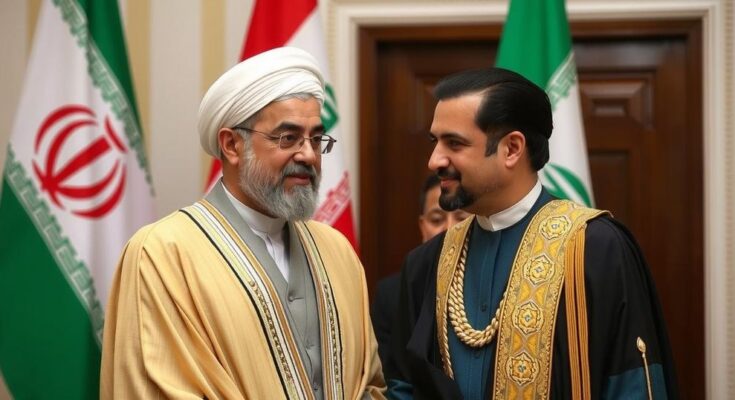Iraqi Prime Minister Mohammed Shia Al-Sudani will visit Tehran for high-level talks aimed at enhancing bilateral relations and discussing regional developments, particularly about Syria. This visit follows his earlier engagements with leaders in Jordan and Saudi Arabia and will focus on significant security issues.
Iraqi Prime Minister Mohammed Shia Al-Sudani is scheduled to travel to Tehran at the end of next week for discussions with senior Iranian officials. The Iranian Foreign Ministry spokesperson, Esmail Baghaei, emphasized that the purpose of this visit is to bolster bilateral relations and engage in dialogue regarding regional developments. An Iraqi government source confirmed the meeting’s agenda, particularly addressing recent events in the region, with a significant emphasis on the situation in Syria.
This visit follows a series of diplomatic activities by Prime Minister Al-Sudani, who has previously engaged with regional leaders during his visits to Jordan and Saudi Arabia, focusing on critical security issues arising from the collapse of Bashar al-Assad’s regime. Notably, Al-Sudani had last visited Tehran in May, attending the funeral of the late Iranian President Ebrahim Raisi.
The upcoming visit by Iraqi Prime Minister Mohammed Shia Al-Sudani to Iran is significant in light of the evolving geopolitical landscape in the Middle East, particularly following changes in leadership and ongoing conflicts. The emphasis on strengthening bilateral relations highlights the importance of cooperation between Iraq and Iran, especially amidst the backdrop of tensions related to Syria and the broader region. Al-Sudani’s recent engagements with other Middle Eastern leaders further illustrate Iraq’s active diplomatic stance in addressing regional security matters.
In summary, Prime Minister Mohammed Shia Al-Sudani’s anticipated visit to Iran underscores the importance of fostering strong bilateral ties and collaborative discussions concerning regional challenges. This diplomatic engagement marks a continuation of Iraq’s proactive approach in regional diplomacy, especially in response to critical developments in Syria and the effects of leadership changes in the region.
Original Source: shafaq.com




